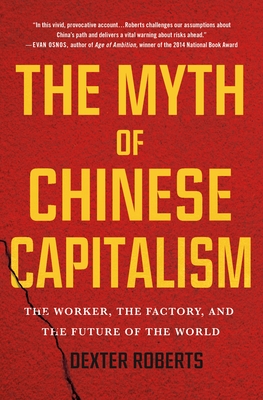
The Myth of Chinese Capitalism:The Worker, the Factory, and the Future of the World
Book Summary
While gleaming towers, high speed trains and expressways of urban China are well known, there is another China that most of us know very little about. In the last three decades, the rural interior of China has seen a mass exodus of people as factories in coastal regions promise a dream of rising wages and prosperity.
Author Dexter Roberts offers a rare view of how the rural China is affected by this mass exodus in The Myth of Chinese Capitalism. With the help of several interviews with migrant workers, business owners, labor activists and policymakers, the veteran China journalist provides valuable insights into how Beijing policies are impacting urban and rural families differently.
China’s rapid rise to “factory of the world” status is driven by the willingness of farmers to abandon farming and move to urban areas in search of higher income and better life. However, China’s hukou policy has created a two-tier system and prevents migrants from setting roots and forming families in urban areas. Even after working for more than three decades, as many as 400 million workers are still migrants and cannot settle down in prospering cities, finding it also difficult to return home.
As the availability of cheap factory workers in China begins to shrink, Beijing policy makers are forcefully advancing rapid factory automation to preserve economic growth rate. However, the rapid “robot adoption” is coming at the same as more and more foreign companies are leaving China, forcing migrant workers into low-skill service jobs.
There are several myths surrounding the Chinese economy and the book deals with a few of them head on. The middle class in China will keep expanding; migrants will return to the countryside and spark the service economy boom; economic reforms will soon be followed by political reforms; and China is all equipped to avoid Japanese-style economic stagnation.
China is facing not only the middle-income trap but also the rapidly slowing economy, dramatic income and wealth inequality, a sharp decline in birth rate and extraordinary debt burden. Despite the best efforts of the government, the Chinese economy is likely to slump into years of stagnation similar to the one faced by neighboring Japan, once the factory to the world.
